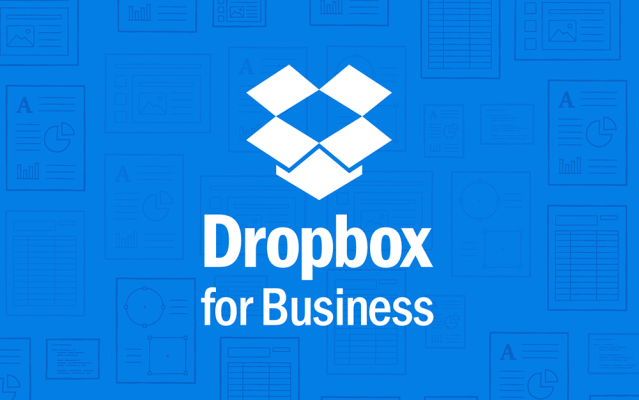Dropbox’s frilly consumer brand and lack of hardcore enterprise security features has kept its “For Business” software from scoring more corporate clients. But an internal-only Dropbox launch plan attained by TechCrunch says that’s about to change with the release of a Dropbox For Business API.
Scheduled to be announced Wednesday (though this leak could change that), the Dropbox For Business API will let enterprise customers connect their existing third-party security and compliance tools to their cloud storage, or build their own Dropbox For Business (DfB) apps. Dropbox has worked with over a dozen enterprise tool makers including Microsoft, Dell and IBM so their products will work with the DfB API upon launch. Dropbox has yet to respond to a request for comment.
[Update 12/3 Noon PST: Dropbox For Business has now launched its API, and announced it’s hit 100,000 business customers. Documentation for building new enterprise apps or connecting third-party apps is now available.]
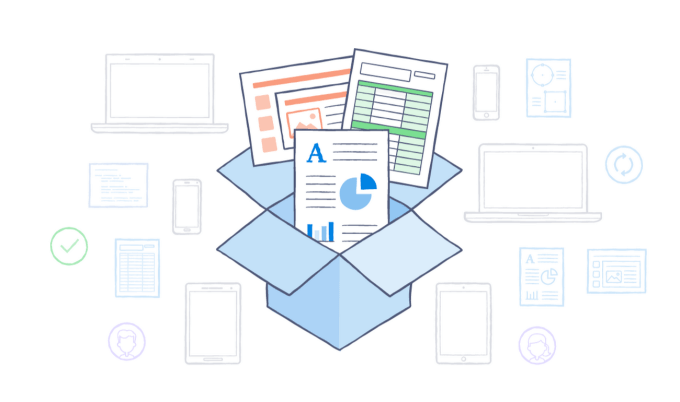
Dropbox seems to have realized it would take too long to build all the necessary functionality to seduce enterprise clients, and many already have piecemeal providers for these different tools.
So to keep up with Box and its extensive, years-old enterprise app platform, Dropbox is launching its own to augment the siloed Dropbox For Business client it unveiled a year ago. The API could let clients fill the holes in Dropbox For Business rather than going elsewhere for feature-complete enterprise cloud storage. It’s a smart move that drastically improves both how Dropbox works for big clients, and their perception of it as a serious enterprise provider.
Why Does Dropbox For Business Need An API?
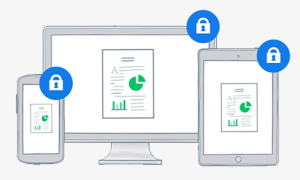 Dropbox’s consumer service already has a platform sporting 100,000 connected apps. They allow everything from photo syncing to advanced file search. Those are a big help to all of Dropbox’s 300 million users.
Dropbox’s consumer service already has a platform sporting 100,000 connected apps. They allow everything from photo syncing to advanced file search. Those are a big help to all of Dropbox’s 300 million users.
But the enterprise has very different needs. That’s why Dropbox spun up Dropbox For Business as a separate product and rolled it out in April. It features Sharing Audit Logs to check exactly who saw what, options for IT to keep certain files quarantined to work computers or within specific teams, and a Remote Wipe feature can remove any DfB file if an employee leaves the company or has their computer stolen.
DfB partnered with some full-fledged, front-facing enterprise software products like Salesforce, Slack, Asana, Trello, Yahoo and, most recently, Microsoft Office to let you easily save to or access your Dropbox files from these services.
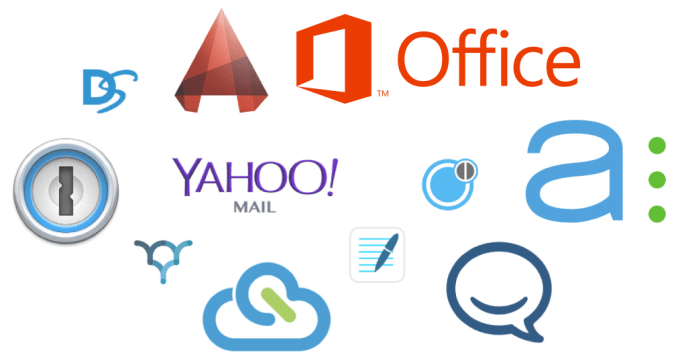
Still, this was just scratching the surface, as there was no way to jack in back-end enterprise tools.
The internal launch plan detailing how Dropbox’s responses and possible dodges to various questions about the API says Dropbox recently signed up Hyatt, Heart Corporation, and News Corp. To score contracts with more big corporations dealing in sensitive information, it needs extra safeguards around confidential data, authentication, employee activity logs, encryption, and large transfers.
Building this all could take years Dropbox doesn’t have, so it’s launching the API to quickly let partners step in to assist.
What’s The DfB API Do?
The Dropbox For Business API will connect DfB to a variety of third-party enterprise tools:
- Data Loss Prevention – Prevent exfiltration of personally identifiable information or payment card info
- Data Migration – Aid large-scale data transfers or on-site backups
- Digital Rights Management – Encryption and decryption of data for businesses in heavily regulated industries
- Identity Management – Pipe in identity authentication and single sign-on so employees stay authenticated while accessing DfB
- Legal Hold and eDiscovery – Securely maintain files that may be needed in court later.
- Security Information And Event Management (SIEM) – Audit activity logs of employees to check what they’ve accessed.
DfB customers can also build their own custom apps from scratch on the API if they have specific workflows not covered by third-party tools. There will be plenty of documentation for those looking to tinker.
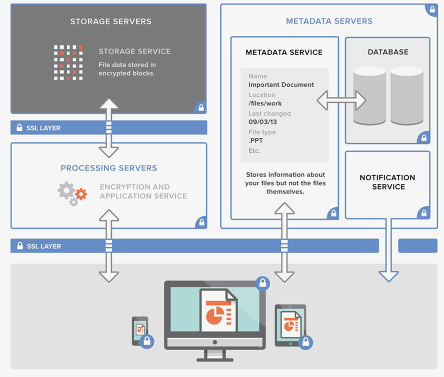
The Dropbox For Business API launch plan indicates that partners with apps ready on day one may include Microsoft Azure AD, Dell Data Protection, IBM WebSphere Cast Iron, Okta, Domo, Splunk, Meldium, nCrypted Cloud, Mover.io, SkySync, Ping Identity, CloudLock, Centrify, Sookasa, and CirroSecure. Dropbox will release more API functionality and set up additional partnerships over time.
The Dropbox For Business price is not expected to move from $15 per user per month. That’s the same price as Box’s Business tier, though Box also offers an undisclosed price for bigger enterprise deals.
No SAAS Is An Island
The API will bring Dropbox closer to being able to truly compete with Box in the enterprise, but Box CEO Aaron Levie tells me being feature-complete goes beyond security. “When we say the word ‘platform’ we think about it in a pretty comprehensive way,” Levie says, citing integrations with enterprise workflows and business processes as essential components, too. Dropbox will have to encompass those, as well.
“We realized pretty early on that to fully protect end users and mission critical content in the enterprise, you’re going to have to work with an ecosystem,” Levie says, referring to Box getting into bed with developers back in 2011.
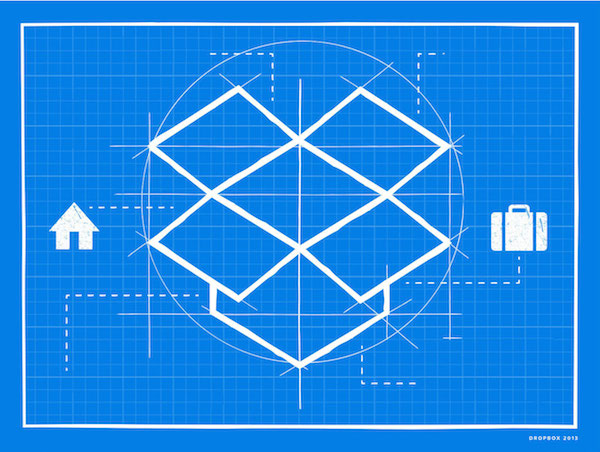
But the enterprise platform game is just getting started. The consumerization of IT, bring your own device, and bottom-up distribution models have all had a profound influence on how work gets done. Levie says it’s evolved past “managing security within the four walls of your office.” No one can build it all from scratch. Businesses have to rely on tools built by others to thrive.
That open model means more and more tools will crop up, and enterprises will need central ways to manage their data across all their partners. Levie notes that “We expect the ecosystem to evolve pretty dramatically over the next couple of years. This is a mindset and a technology shift that both enterprises and vendors are going to go through.”
No wonder Dropbox has spent the past year trying to grow up and put on a business suit. The enterprise model shift translates into an avalanche of dollars that it and Box are jockeying to ride.
